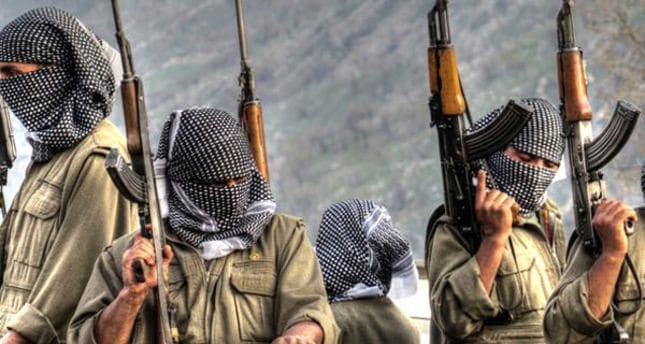| Wednesday, 22 October 2008 | |
|
Hundreds of supporters of the outlawed Kurdistan Workers’ Party (PKK) have been protesting across southeastern and eastern Turkey since Saturday, alleging mistreatment of former PKK leader Abdullah Öcalan.Observers, however, say the real reason behind the demonstrations is the Kurdish issue. “The government has been timid in two areas. One is the resolving of the Kurdish issue, and the other is correcting mistakes in the strategy of fighting terrorism,” said Sedat Laçiner, who heads an Ankara-based think tank. He added that the PKK uses Öcalan when it wants to raise its voice. “In the PKK’s general meeting last August, they decided on a plan which involves military and police targets, civilian targets in big cities and the use of suicide bombers,” he said. One protester died of gunshot wounds on Monday after clashes with police in support of Öcalan, who is serving a life sentence on İmralı Island in the Sea of Marmara. Clashes between protesters and police intensified as the week began, ahead of a visit by Prime Minister Recep Tayyip Erdoğan to the region’s largest predominantly Kurdish city, Diyarbakır. Dozens have been arrested. Some shop owners in the region closed their stores either in support of the protestors or in fear of violence. Laçiner said the PKK needs to raise its voice because the ruling Justice and Development Party (AK Party) has increased its strength in the region, as seen in the 2007 general elections, and dealt the PKK heavy blows with military operations. The AK Party aims to win Diyarbakır’s mayoral post in the coming local elections, scheduled to be held in March of next year, leading the pro-Kurdish Democratic Society Party (DTP) to target the ruling party. DTP leader Ahmet Türk lambasted the government yesterday while speaking in Diyarbakır, a symbolic city for the DTP because pro-Kurdish parties have dominated local elections for the past two decades. Türk accused the government of moving Turkey’s cultural mosaic toward “separation.” Speaking in front of the Greater Diyarbakır Municipality Guest House, Türk said the Kurdish issue was one of Turkey’s basic problems, in existence since the foundation of the republic. “Policies of denial, assimilation and eradication affected people. Only Kurds resisted. They still resist and own their identity,” he said, adding that this is how the PKK flourished, especially following restrictive policies instituted by the military regime following the Sept. 12, 1980 coup. DTP deputies termed the alleged treatment of Öcalan “humiliating and unacceptable” and noted that the AK Party would be responsible for the public indignation the incident would lead to. The authorities deny any mistreatment of Öcalan. Bus services were halted and shops closed in Diyarbakır on Monday after the PKK urged locals to protest Erdoğan’s visit. Kurdish intellectual and writer Altan Tan said the government needs to trust the public. “The AK Party should stand on the right side, the people’s side. It should take steps for more democracy,” he told Today’s Zaman. Speaking about the protests, he said it may be the PKK or some deep-state related elements that are trying to raise tension and create a state of instability. “Forces have been trying to overthrow the government for the last two years. The closure case against the AK Party was a part of it,” he said in reference to an attempt to close the AK Party and ban several of its politicians from politics. “If the scenes of war repeat and the government does not take action, a return to a Sept. 12-like regime should be expected,” he warned. Esat Canan, an ethnic Kurd and a former deputy from the opposition Republican People’s Party (CHP), said the Kurdish issue cannot be solved solely by military means. “Recently, military solutions gained precedence. Allegations of Öcalan’s maltreatment were the straw that broke the camel’s back,” he said, referring to the demonstrations. Turkey recently saw a series of deadly attacks on soldiers by the PKK. The military responded by pounding suspected PKK positions inside Turkey and across the border in northern Iraq, where many PKK members are believed to be based. Some 40,000 people have died in PKK-related violence since 1984, when the group took up arms to try to carve an ethnic Kurdish homeland out of southeastern Turkey. “I am worried about the situation,” Canan said, but expressing belief that Parliament can “extinguish” the fire by passing an amnesty law together with implementing democratic steps. As for the government, Laçiner said a “mobilizing movement” is needed. “The government’s everyday agenda should be full of measures toward solving the Kurdish issue. The government should be in constant touch with nongovernmental organizations in the Southeast; ministers should be involved and people living in the region should be listened to and embraced.” If the crisis cannot be managed well, he warned, tensions will rise. |
Konu Hakkında okumaya devam et:PKK


Bir yanıt yazın